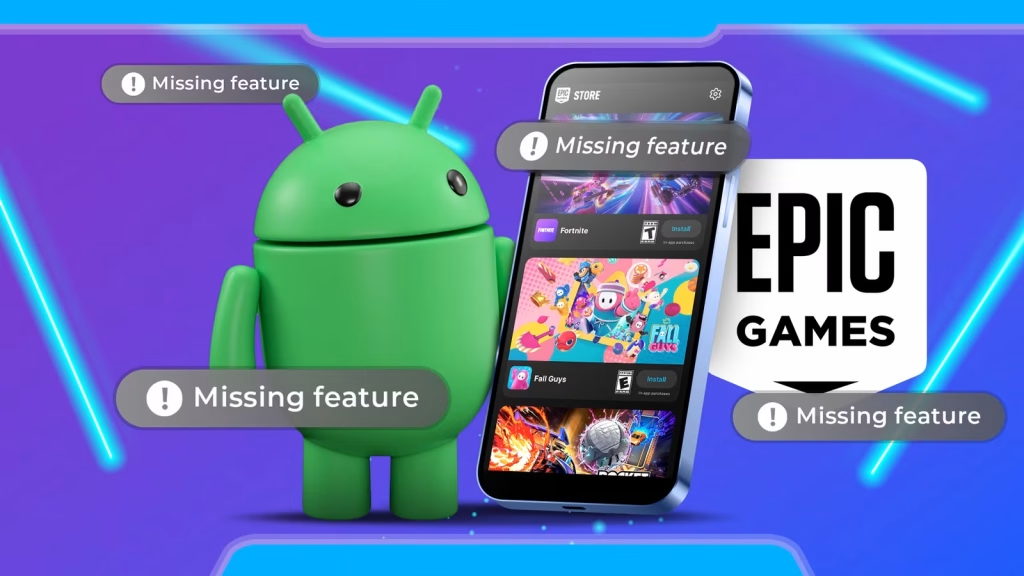Summary
- Google will add “Registered App Stores” to Android for easy web install and Play Store-like app installs.
- Developers can offer alternative payments; Google can charge lower, capped service fees (9% or 20%).
- Sideloading will be restricted from 2026 for unverified devs, but Registered Stores may ease access.
The Epic Games vs. Google lawsuit has been going back and forth for nearly five years, and we finally have an outcome. Just one decision away from a total loss, Google settled with Epic earlier this week. As a result of Google’s concessions, there are some pretty major changes coming to Android in the future. Let’s go over them.
Easier Access to Rival App Stores
For years, trying to install a third-party app store on Android—like the Epic Games Store, for example—hasn’t been the most intuitive process. Google has always maintained that this was for security, but it was also a roadblock to competition. That’s finally changing.
As part of the settlement, Google has agreed to implement changes in an upcoming version of Android 17 that will allow for “Registered App Stores.” We don’t know exactly how this will work yet, but the key thing is that these approved stores will be much easier to install. Instead of a meandering journey through multiple settings menus and pop-ups, you should be able to download and install a third-party app store from its website with a single, neutral prompt.
This new installation flow should also grant the app store the necessary permissions to install apps without all the extra taps that are currently present. Hopefully, this will make alternative app stores feel more “native,” like the Play Store experience. This isn’t just a U.S. thing, either—the streamlined install process is set to roll out globally.
Google also agreed to stop blocking phone manufacturers and carriers from pre-installing rival app stores or putting them on your home screen. For three years, they won’t be able to offer incentives to prevent this. One thing we’re not sure about is the process for uninstalling these approved third-party stores.
Alternative Payment Options
As we previously talked about last month, there are also changes coming to how you pay for things pertaining to Android apps. Developers will be able to bypass the 15% to 30% cut Google takes through its mandatory Play Billing system by offering alternate payment options.
Currently, it’s against the rules to include options in apps for people to pay for things outside of Google’s Play Billing System. The change will allow developers to communicate with you about pricing outside of the Play Store. You’ll be able to see and tap on these options, which can include external web links or different in-app systems. Since developers will be able to keep more of their revenue through these alternative methods, they could theoretically pass the savings on to you with lower prices for things like subscriptions and in-app purchases.
Google can still charge a “service fee” on transactions made through these alternative payment methods, but that fee will be capped much lower, either 9% or 20% depending on the type of purchase. This is a significant reduction that should still benefit you and the developers you support.
What About Sideloading?
If you’ve been keeping up with Android news, you’ve probably been following the drama around upcoming changes to sideloading. Starting in late 2026, Android will block the installation of apps made by unverified developers. Google claims this is to stop malware and scams, and they insist that sideloading isn’t going anywhere, but not everyone agrees with this. In fact, some are accusing Google of blatant lying.
The Epic ruling hasn’t changed Google’s plans, but the hope is that the”Registered App Stores” system could help the situation. Those approved app stores can take on some of the developer verification burden, maintaining the ability the find apps from outside of the Play Store. If everything continues as planned, it will still be a net negative compared to the current system, but not quite as dire.
In the long run, this is a massive win for Android users. We get more choices, potentially lower prices, and a more open Android experience, which is what Android was always supposed to be about.
Source: The Verge, Android Authority


